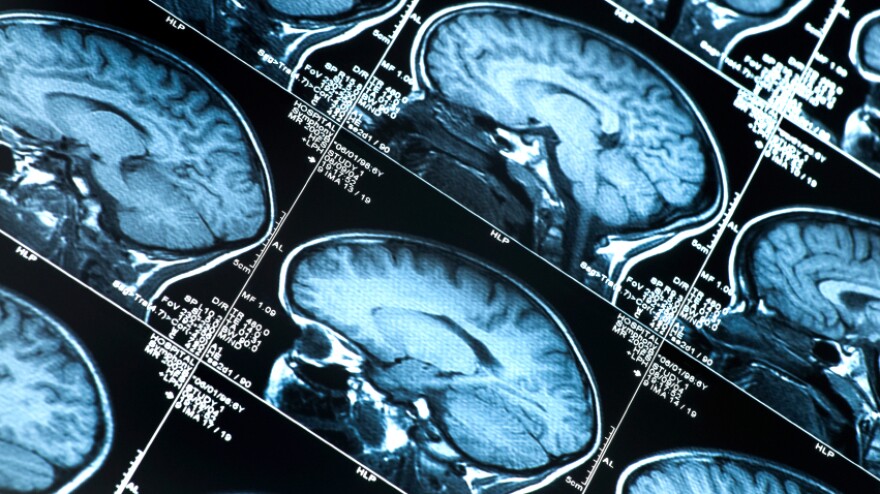Doctors have long suspected that head trauma boosts the risk of getting Alzheimer's disease later on, but the evidence on that has been mixed.
But it looks like people who have memory problems and a history of concussion are more likely to have a buildup of plaques in the brain that are a risk factor for Alzheimer's, according to researchers at the Mayo Clinic.
But there were also people in the study who had had concussions and who didn't have amyloid plaques in their brains. They were also less likely to have memory problems. All told, the people with memory loss were 20 percent more likely to have plaques.
It's not known why the people with memory issues seem to be more at risk for long-term effects of concussion, or if the concussion was even a factor in the brain changes. But the finding jibes with other recent research that suggests that some people are more at risk.
"We need to figure out what's making some people more vulnerable than others," says Michelle Mielke, an Alzheimer's researcher at the Mayo Clinic who led the study. It was published online Thursday in the journal Neurology.
"Just because you have a head trauma doesn't mean you're going to develop memory problems or significant amyloid levels," Mielke told Shots. And it doesn't mean you're going to get Alzheimer's. "But it does suggest to us that there's a mechanism with head trauma that does increase your risk."
Mielke and her colleagues did PET scans on 589 people who are participating in a long-term study of aging and memory. That's a lot of people for a brain imaging study, which makes it more likely that the findings are accurate.
The people were in their 70s and 80s. About one quarter of the people had mild cognitive impairment, thinking and memory problems that may or may not lead to Alzheimer's.
Roughly 20 percent of the entire group reported having had a concussion, one bad enough for them to lose consciousness or lose memory. In most cases, those concussions happened at least 50 years ago. Head injuries are most common in the young.
Now that she had found an association between head trauma and amyloid in people's brains, Mielke also wants to look for another marker for Alzheimer's, tau protein. Earlier this year, other researchers figured out a way to see tau in the brain of a living human with PET scans. Before, the only way it could be measured was through a spinal tap.
"To have almost 500 people with amyloid imaging measures, it's a lot of people, but it's still not large enough," Mielke says. "Are all these people going on to develop Alzheimer's? Hopefully down the road we can answer that question."
Copyright 2021 NPR. To see more, visit https://www.npr.org. 9(MDIxMDkyNjUxMDE0NDY1Njg1NzRiOTRiYQ000))





